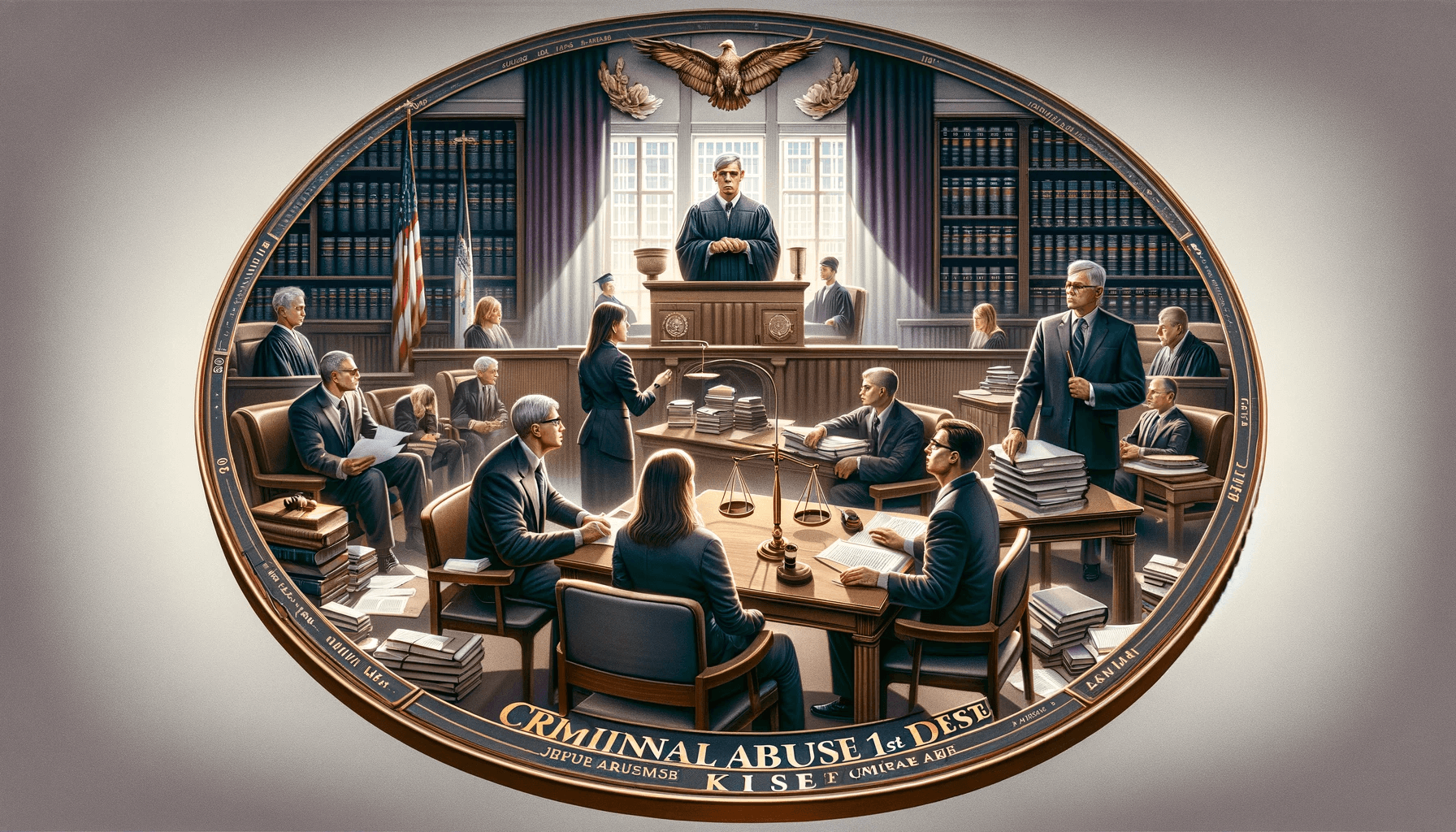Hey there! I’m John M. Kaman from Kaman Law Firm. If you’re trying to wrap your head around what “criminal abuse 1st degree” entails, you’re not alone. It’s a legal term that can be complex, but it’s crucial to understand, especially if you or someone you know might be facing such charges. Let’s break it down in a clear, straightforward manner.
Defining Criminal Abuse 1st Degree
Criminal abuse in the first degree is a serious charge typically associated with instances of harm or risk of harm to another person, especially a child or a vulnerable adult.
Key Elements:
- Severity: It’s a step above simple abuse, indicating more severe harm or risk.
- Victims: Often involves vulnerable individuals who are unable to protect themselves.
Legal Context and Implications
This charge often falls under the umbrella of domestic or family violence laws.
- State Laws: The specifics can vary by state, but it generally includes intentional physical harm, neglect, or endangerment.
- Felony Charge: In most jurisdictions, first-degree criminal abuse is a felony, carrying more severe penalties than lower-degree abuse charges.
Understanding the Charges
Understanding what constitutes first-degree criminal abuse is essential, whether you’re a legal professional, defendant, or concerned citizen.
- Physical Harm: Inflicting serious physical injury intentionally.
- Endangerment: Placing someone in a situation that poses a serious risk of physical harm.
- Caretaker Neglect: For those in a caretaker role, neglecting the basic needs of a person under their care.
Potential Penalties and Sentencing
Being charged with criminal abuse 1st degree can lead to significant legal consequences.
- Prison Time: Convictions can result in lengthy prison sentences.
- Fines: Substantial fines may be imposed.
- Permanent Record: A felony conviction can have long-lasting impacts on various aspects of one’s life.
Legal Defenses
There are several defense strategies that can be employed in these cases.
- Accidental Harm: Arguing that the injury was accidental and not intentional.
- Mistaken Identity or False Accusation: Providing evidence that the accused was wrongly identified or falsely accused.
- Lack of Evidence: Challenging the prosecution’s evidence as insufficient to prove the charges beyond a reasonable doubt.
The Role of Legal Representation
Navigating a charge of criminal abuse 1st degree requires skilled legal representation.
- Expert Advocacy: A qualified attorney can provide crucial representation and advice.
- Case Building: Gathering evidence, identifying witnesses, and building a strong defense case.
- Negotiation: Experienced lawyers can negotiate plea deals or lesser charges when appropriate.
Impact on Families and Communities
The ripple effects of a criminal abuse 1st degree charge can be profound, affecting families and entire communities.
- Family Dynamics: These charges can disrupt family relationships and dynamics.
- Community Response: Communities often rally to support victims or may need to address underlying social issues.
Conclusion: Navigating the Complexity
In summary, criminal abuse 1st degree is a serious charge with significant legal and social implications. It requires a nuanced understanding of the law and an experienced legal approach.
If you’re facing such charges or need more information, don’t hesitate to reach out to us at Kaman Law Firm. We’re here to provide clarity, support, and expert legal assistance in these complex situations. Let’s navigate the legal system with knowledge and expertise.









Leave a Reply